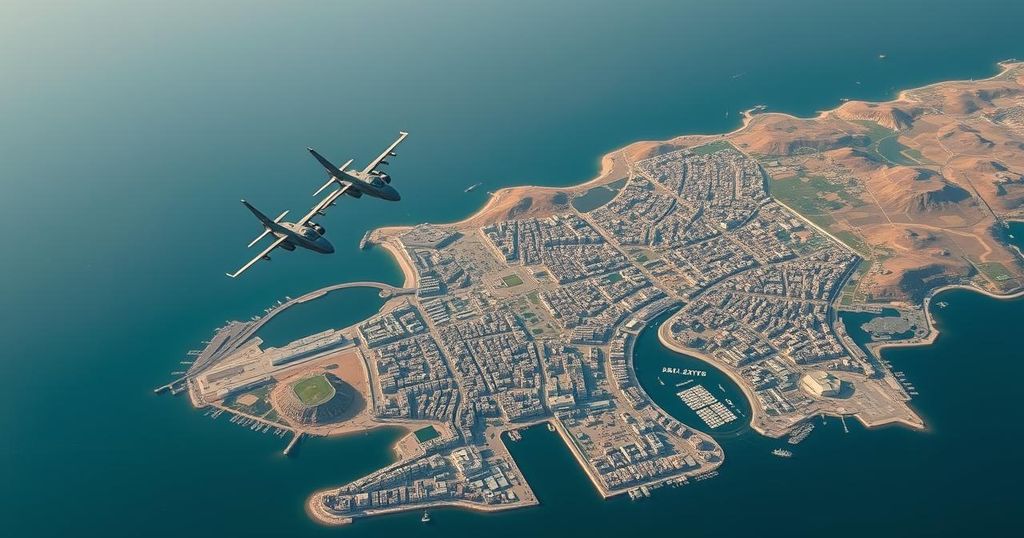An Israeli airstrike on a municipal building in Nabatieh resulted in the deaths of 16 individuals, including the mayor. Lebanese Prime Minister Mikati condemned the attack as a deliberate assault, criticizing the international community for its inaction. The Israeli military claimed the attack targeted Hezbollah infrastructure, yet has not clarified the justification for hitting a government facility.
In a recent aerial attack by Israel on the Lebanese city of Nabatieh, a government building was struck during a meeting of local authorities, resulting in the deaths of 16 individuals, including the city’s mayor, Ahmed Kahil. Lebanon’s caretaker Prime Minister, Najib Mikati, reacted strongly to the attack, denouncing it as a deliberate act against the local government. He criticized the international community for its inaction surrounding Israel’s military operations in Lebanon, calling for a response to what he referred to as the aggressions of the Israeli military. Mikati emphasized the tragedy of the airstrike coinciding with discussions on the city’s urgent service and relief issues. This incident represents a marked escalation in the conflict, being the first known attack by the Israeli military on a Lebanese government installation during the current military operations. Following the strike, the Israeli military asserted that their primary targets included infrastructure associated with Hezbollah, labeling the sites as command centers and weapon storage facilities. However, they have refrained from providing specific justifications regarding the assault on the municipal building. As aerial bombardments intensify, numerous civilians, including responders and displaced persons, have reportedly lost their lives without clear explanations from Israeli military sources regarding their targeting decisions. The coverage of this event has garnered significant attention in the Lebanese media, with major headlines focusing on the devastation and loss of life. The French-language newspaper L’Orient-Le Jour characterized the incident as an escalation, sensing a alarming trend in regional conflicts that emphasize the vulnerability of civilian infrastructures amidst military strategies.
The ongoing conflict between Israel and Hezbollah has heightened tensions in the region, leading to significant military actions that impact the civilian population in Lebanon. The Israeli military operations have frequently targeted areas associated with Hezbollah’s military capabilities, claiming the justification of neutralizing threats. However, these operations often result in collateral damage, raising critical concerns over the international law implications and the humanitarian crises that ensue from such actions. The situation remains precarious, with both local and international observers calling for a more robust response from the international community to address the violence and loss of life experienced by civilians in Lebanon.
In summary, the Israeli airstrike on a government building in Nabatieh, Lebanon, represents not only a tragic loss of life but also a significant escalation in the ongoing conflict. The Lebanese government’s response, particularly from Prime Minister Mikati, highlights the urgent need for international accountability regarding military actions that affect civilians. As the situation develops, the implications of such strikes on regional stability and humanitarian considerations remain a critical concern. The widespread impact on civilians continues to raise questions about the proportionality and necessity of military operations in populated areas, prompting calls for a more effective international intervention to mitigate further violence.
Original Source: www.bbc.com






